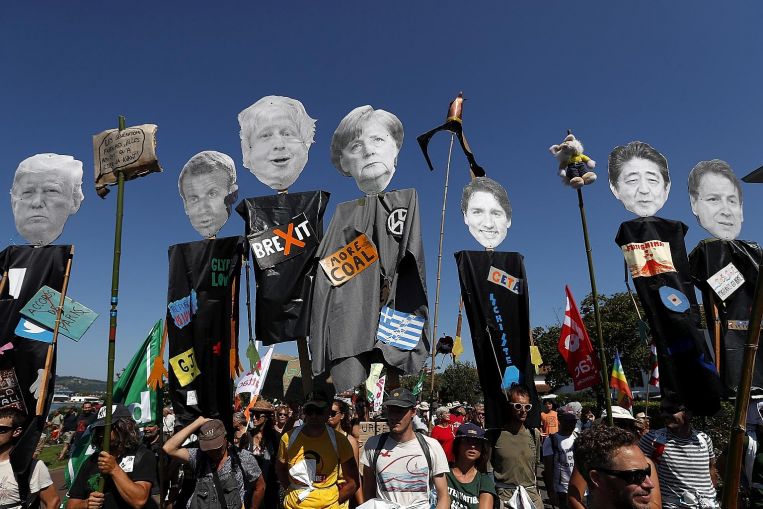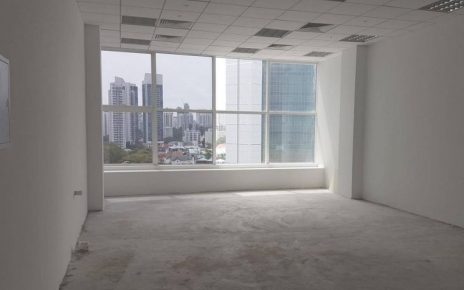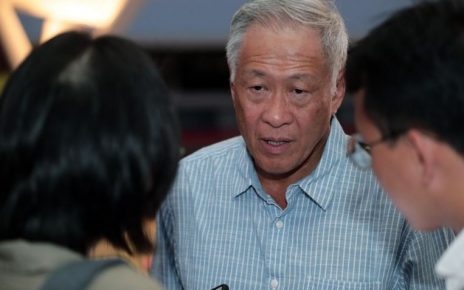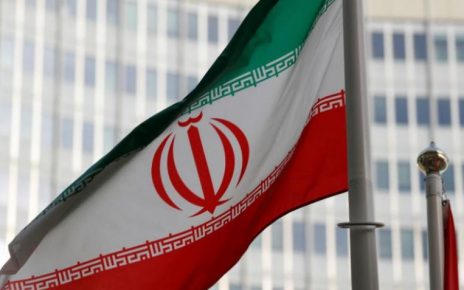
BIARRITZ • Efforts to salvage consensus among the Group of Seven rich democracies frayed yesterday in the face of US President Donald Trump’s unpredictable America-first approach even before the official start of the summit in southern France.
European Council President Donald Tusk said the three-day summit in the seaside resort of Biarritz would be “a difficult test of the unity and solidarity of the free world and its leaders” and that “this may be the last moment to restore our political community”.
Even as Mr Tusk, who presides over the council of leaders of the 28-member European Union, said the last thing the bloc wanted was a trade dispute with the United States and called for “an end to trade wars”, he promised to retaliate against US products if Mr Trump carries through on a threat to impose tariffs on French wine.
Mr Trump made the threat in response to a proposed French tax on Internet companies.
French President Emmanuel Macron, who is hosting the summit that began yesterday, has made clear that he has little expectation that Mr Trump will join any statement on fighting climate change even as the issue shot to the top of the agenda with the widespread fires in the Amazon.
He has already rejected Mr Trump’s request to let Russia rejoin the group five years after being expelled over its seizure of Crimea. And he is trying to hold together the European line on the Iran nuclear deal over US objections.
In a nationally televised speech timed for the moment Mr Trump touched down in Biarritz, Mr Macron repeatedly used the word “disagreements” to describe the expected atmosphere. Later, as the two faced each other across a dining table, he used the softer word “divergences” regarding climate change.
Mr Macron described Mr Trump as a “very special guest” and Mr Trump fondly recalled the dinner they shared at the Eiffel Tower.
But Mr Macron was firm that leaders owed it to the world to come up with solutions.
“We have disagreements, and at times there are caricatures. But I think that the great challenges that we have – climate, biodiversity, the technological transformation, the fight against inequality, this global insecurity – we will resolve them only by acting together, by reconciling,” he said.
Mr Macron threatened to block an EU trade deal with several South American states, including Brazil. Ireland joined in the threat. German Chancellor Angela Merkel disagreed, with her office saying yesterday that blocking the Mercosur deal will not reduce the destruction of rainforest in Brazil, although she backed Mr Macron’s proposal to discuss the fires at the summit.
Lowered expectations are nothing new for the G-7, but this year’s intent seems to be just to avoid diplomatic catastrophe, salvage the possible, and show voters that their leaders have a role on the world stage. One force that could push leaders together is their joint vulnerability to an economic slowdown, especially the ones who, like Mr Trump, are facing elections in the next year or two.
Disputes on trade have unsettled the global economy because businesses do not know where tariffs will be imposed or what the trading system will look like in a world that has become dependent on supplies of materials, parts and goods flowing through intricate cross-border supply chains.
Given lowered expectations, the most important summit outcome would be “to do no harm”, said Dr Holger Schmieding, chief economist at Berenberg Bank in London.
ASSOCIATED PRESS
SEE



